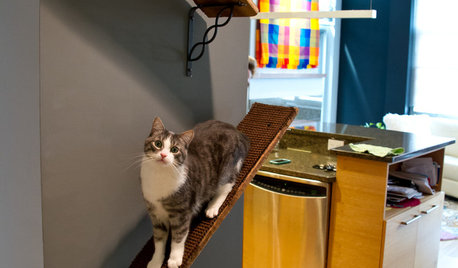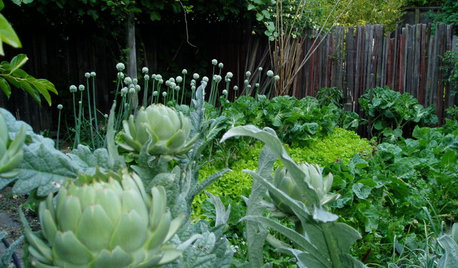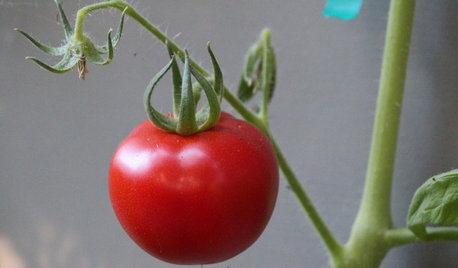How long does corned beef keep?
phloodpants
16 years ago
Related Stories

SUMMER FRUITS AND VEGETABLESHow to Grow Your Own Fresh, Sweet Corn
Here's how to plant and care for your own mini cornfield
Full Story
MOST POPULARWhen Does a House Become a Home?
Getting settled can take more than arranging all your stuff. Discover how to make a real connection with where you live
Full Story
BATHROOM DESIGNPowder Room Essentials to Keep Guests Happy
Set out these bathroom necessities (hello, hand towels) to make your company comfortable and your parties run smoothly
Full Story
PETSUpload of the Day: Catwalks Keep Pets Happy in a Candy-Colored Condo
Shelves and wall-mounted boxes keep 2 cats active and entertained while their guardian is at work making jelly beans
Full Story
HOMES AROUND THE WORLDHouzz Tour: Streamlined Family Home Keeps Its Storage Tucked Away
In this modernized London Victorian, the focus is on letting beautiful materials and soothing colors shine
Full Story
FRONT YARD IDEAS10 Ideas for a Front-Yard Edible Garden Your Neighbors Will Love
Choosing attractive, well-mannered plants and sharing the bounty will go a long way toward keeping the peace
Full Story
GARDENING GUIDES8 Plants for a Deliciously Fragrant Fall Garden
Scent the autumn air with the perfume of caramel corn, honey and spices by adding these intoxicating plants to your landscape
Full Story
FARM YOUR YARDIf You Have Room for Only One Summer Crop ...
Get an edible that’s long on flavor even if you’re short on space, with a long-time gardener’s favorite picks
Full Story
MOST POPULAREasy Green: 23 Ways to Reduce Waste at Home
Pick from this plethora of earth-friendly ideas to send less to the landfill and keep more money in your pocket
Full Story
REMODELING GUIDESWhat to Know Before You Tear Down That Wall
Great Home Projects: Opening up a room? Learn who to hire, what it’ll cost and how long it will take
Full Story





ksrogers
ksrogers
Related Professionals
Foothill Ranch Landscape Architects & Landscape Designers · Marina Landscape Architects & Landscape Designers · Anderson Landscape Contractors · Norwood Landscape Contractors · Cordele Landscape Contractors · Dallas Landscape Contractors · Davis Landscape Contractors · Huntley Landscape Contractors · Milford Landscape Contractors · Riverview Landscape Contractors · Murray Roofing & Gutters · Port Neches Roofing & Gutters · SeaTac Roofing & Gutters · Randolph Driveway Installation & Maintenance · Mount Vernon Driveway Installation & Maintenance